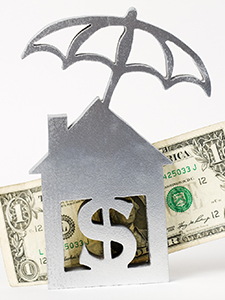POST TAGS
Blog posted On August 19, 2020

Financial stress related to the coronavirus pandemic has led many Americans to reevaluate their emergency savings. Workers of all industries have experienced income disruptions over the past several months from temporary and, in some cases permanent, layoffs. You know you should set aside some savings for an emergency fund but just the thought of starting one may seem overwhelming. If you haven’t started saving an emergency fund, or you would like to grow your emergency fund, here’s where you can start.
Set a Goal
The recommended savings of three months’ worth of expenses may not be realistic based on your current income and expenses, that’s okay, you can set a more achievable goal. Think in percentages, not specific dollar amounts. If you are an hourly employee and the amount of your paycheck differs from week to week, saving a percentage rather than a fixed dollar amount may be easier. Once you’ve reached your first savings goal, set a higher goal. What feels impossible now, will be a realistic goal later.
Maximize Your Savings
Where you save your money matters. A stash of cash at home is not earning you any interest. If you don’t have a savings account, open one. If you do have a savings account, compare your annual percentage yield with other banks. Online-only banks can offer higher savings rates because they do not have to pay the cost of maintaining branches. You may also want to look into money market accounts or other higher interest options. You’ll want this money to be accessible in case of an emergency, so before you start a new account find out how and when you can withdraw the money if needed.
Pay Down Debt
You may not be able to increase your income at this time, but you can work to decrease your debt. When you lower or eliminate your debt, that’s one less monthly bill you’ll have to worry about if you experience a disruption in your income. When you start chipping away at your debt, focus on high-interest debt first. In some instances, you may be able to consolidate your high-interest debt with a lower interest personal loan or other payment plan. Reducing your debt essentially increases your usable income and gives you more to save.
When you’re saving for your emergency fund, you can start small. Set realistic savings goals and increase these goals as you achieve them. Improve your financial wellness and give yourself peace of mind.
Sources: CNBC